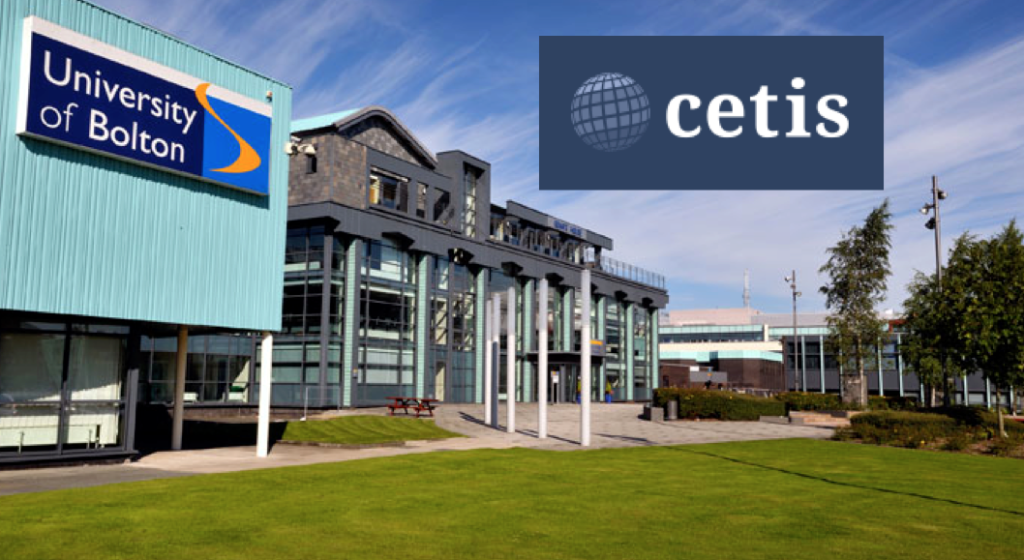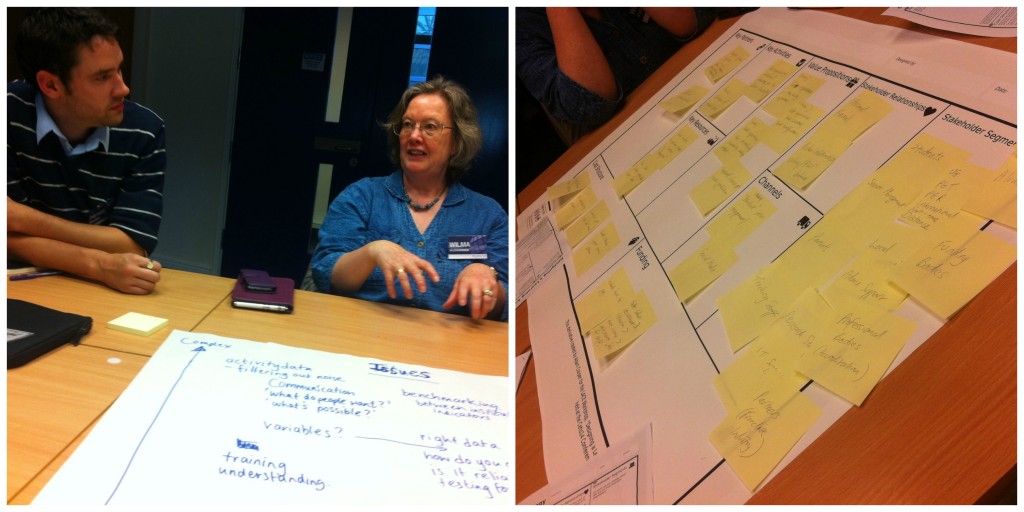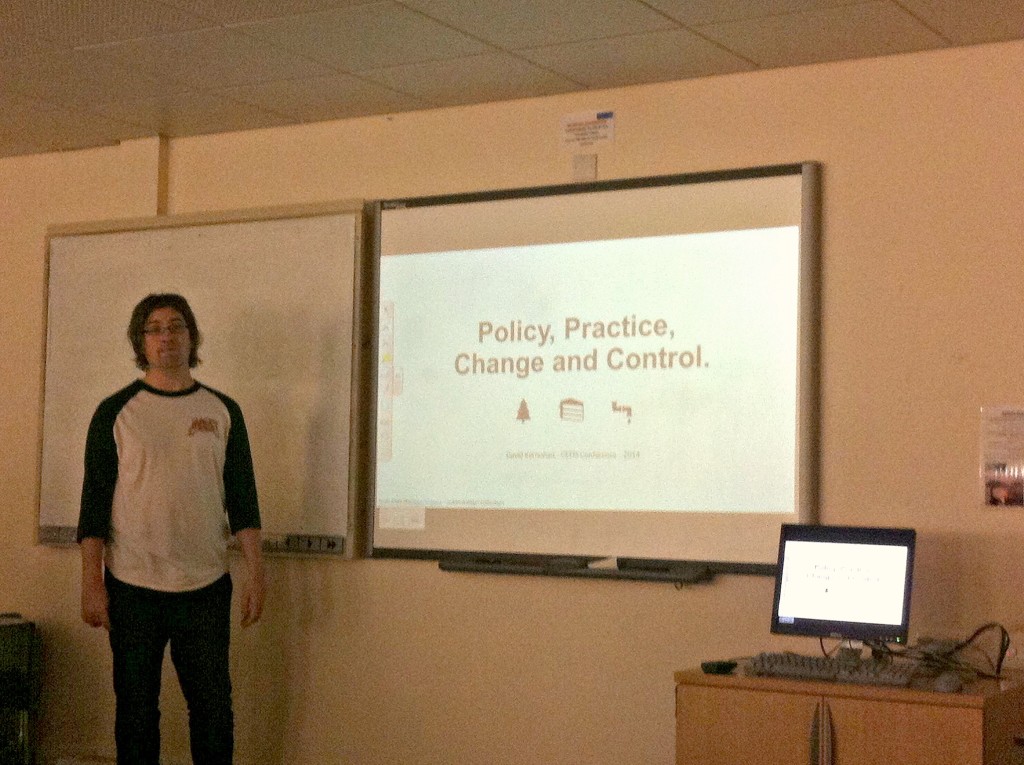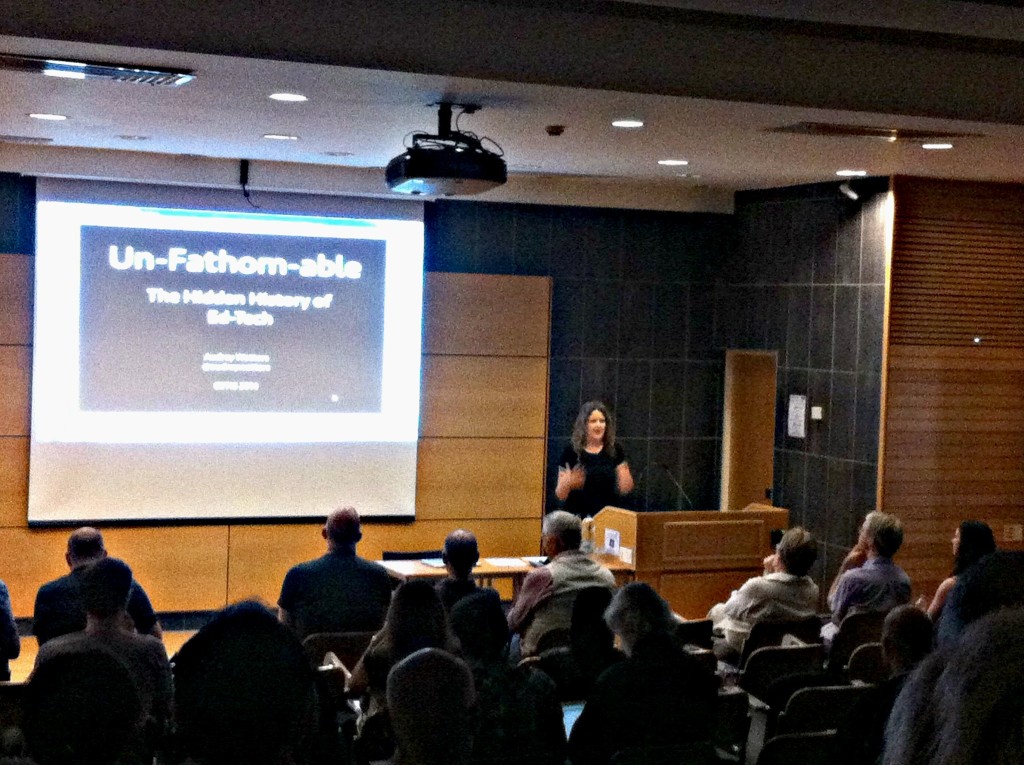Cetis Conference 2014: Time to Unhide Open
The Cetis conference is an annual opportunity for UK developers, learning technologists, lectures and policy makers to come together to discuss recent innovations in the domain of education technology. This year the theme was ‘Building the Digital Institution: Technological Innovation in Universities and Colleges‘ and I was really pleased to be attending on behalf of the Open Education Working Group. The conference took place at the University of Bolton from 17th – 18th June 2014.
Cetis has been an important part of the UK Higher Education landscape for over a decade, originally as an Innovation Support Centre, but recent changes have resulted in some redefining. Cetis now specialises in technology innovation and interoperability standards in learning, education and training. It has a real interest in open education and is involved in projects like the LMRI Learning Metadata Resource Initiative (LRMI) and the Learning Analytics Community Exchange (LACE) Project. While the opening plenary from Phil Richards, Jisc Innovation officer, giving an overview of the changing landscape might be of interest to UK residents there probably wasn’t too much to offer the global audience, so I’ll give it a miss here and move quickly on to the meat of the event – the parallel sessions. If you want to read more about Phil’s keynote then Sheila MacNeil gives a good overview.
Developing a Learning Analytics Strategy for a HEI
The Learning Analytics session led by the LACE Project team was a practical session allowing us to work on a real strategy whilst bearing in mind cultural, epistemological, and/or pedagogical concerns.
The session began with some brief overviews from 6 participants (Sheila McNeil; Glasgow Caledonian University, Amber Thomas; Warwick University, Wilma Alexander; Edinburgh University, Andy Sugden; University of Bolton) on how learning analytics are being used in their institutions. Despite differences in approach at the institutions is became clear that while some learning analytics are being collected there continue to be challenges in getting data and so far little use of the data.
Discussions then moved on to issues as diverse as Tier 4 data (relating to student immigration), student engagement (how can we get qualitative data out of students about their experience?), problems with interpreting data and objectivity, the measurements themselves, who exactly is driving the analytics, privacy, communication (what questions should we ask, what data do we need to answer those questions?) and data as justification for use of systems.
Open Education: from Open Practice to Open Policy
On day 2 I participated in a session entitled Open Education: from Open Practice to Open Policy led by Lorna M. Campbell from Cetis and a member of our advisory board.
The session focused on the emergence of open policy and practice across the UK and further afield, and explored questions relating to the potential benefits of these developments. What, if any, is the value of open education policy? Do institutions need open education policies? Should government agencies play a role in the development of open education policy? Are there conflicts between commercial interests and market forces, and open education policy and practice? How can open education initiatives be nurtured and sustained? And what do we mean by “open education” anyway?!
The premise of the session was that we lived in a fictional country (name to be filled in here!) and had to decide if we felt it should have an open education policy. The speakers in the session were to present their case that would sway you in one way or another.
David Kernohan, Jisc (who has written about Open Education UK on our blog before) began by reminding us that by definition policy can only guide decisions, it is not a mandate, nor a condition, law or contract. While it bring a matter to wider attention or be a good basis on which to argue for funding, a policy alone can not bring about change. He referred to international policy (such as the UNESCO Paris declaration – though is a declaration a policy?) and the need for implementation plans to back up such declarations. Policy is not process, and vice versa. David then took us on a trip down memory land looking at the UKOER programme where there had been no mandating of licensing. The programme had often supported what people were doing in the space already and enabled them to, whilst still being about openness, take more responsibility and control with regard to what resources were online and how they were shared. David concluded by saying that UKOER had involved many policies, many people, many practices but resulted in one community. Its real success was multiple small non prescriptive projects that gave agency for people to work in the open space. David’s slides are available online.
Paul Richardson, Jisc RSC Wales took us back to definitions of openness (here I’d recommend the open definition) and gave a brief overview of the situation in Wales (Cymru), They have had the recent Wales Open Education Declaration of Intent.
Joe Wilson from the Scottish Qualifications Authority argued for role of OER beyond academia. He gave the example of how Scotland have used OER materials to support teachers with genetics knowhow and the upskilling teachers with coding skills. He pointed out how in some Local Authorities there are mandates currently stating employees including teachers shouldn’t share content, despite the practice of doing so – policy would make a big difference here. [It was good to hear about some work that Josie Fraser and her team are carrying out at Leicester Council on Understanding Open Educational Resources: Information for Schools – hopefully more on this soon]. Joe also queried how policy might affect other sectors, for example does the private sector practice openness?
The discussion that followed was around whether policy has a place when it was often people (open practitioners), rather than institutions taking the lead. Simon Thompson from Leeds University was quoted: “People sustain open education – not policy or practices.” Interestingly this lead to a well-worn discussion on ownership of learning materials in universities. There is a lack of clarity in this area–but more often than not the university owns copyright, though many academics don’t realise this, or chose not to admit it!
On one hand policy might endorse the choice of academics to share, but on the other it was clear that policy continually lags behind practice. The matter of funding also came up – Is openness reliant on funding? Possibly not, but it is dependant on staff capabilities.
In the second half of the workshop Suzanne Hardy gave an overview of open education at Newcastle University. As a Russell group university it is highly risk adverse and new policies can take time to go through council. Suzanne remarked on the risk of policy becoming a tick box exercise (that University is doing it so we have to too) and that we can be stifled by policy and that often academics don’t like being told what to do. At Newcastle the initial policy process had opened up a can of worms. Staff were unable to embed MOOC content into student courses because these students had not officially signed up to Futurelearn terms and conditions. Suzanne’s slides are available online.
Paul Booth, a film lecturer from Manchester Metropolitan University, offered the perspective of someone using and creating OERs. He found that while being praised externally for doing so his own institution had struggled with the IP issues and had reprimanded him, highlighting the gap between policy and practice. Paul Booth cited Jonathan Worth’s Phonar work for photography courses which had really put Coventry University in this area. In response to internal resistance Paul had set up regional OER group (North West OER); Paul noted that there is little traction of open ideas outside of our open education bubble and asked us to consider how you can promote OER externally – an issue the working group in interested in. Regional partnerships across Europe might be one approach. Paul’s notes are available online.
Another quote from Simon Thompson fits the bill here: “Practice is more powerful than policy, but policy legitimises the practice.”
The final contribution of the workshop and the only non-uk perspective was from Tore Hoel of Nordic OER. Tore argued that while the open access battle has been won, due to a clear enemy and focused processes, the open resources fight remains in a state of confusion. This is possibly due to the plethora of OER definitions, the lack of understanding of the role of commercial actors etc. In Norway and the Nordic countries there is a deeper understanding of the value of openness and transparency. Issues such a multilingualism and less used language OERs were at the forefront and people were beginning to see OER as data – separate elements that can be shared. (see Open Education Ideas and Megan Beckett’s blog for more on breaking down OERs.)
So I think we remained undecided as a nation about the need for policy. While there is a role for role for policy – at national levels and at other levels – people and practice are usually ahead of the game. If you want to bring about open educational practices invest in people through capability building.
Mor more on open education policy see the Creative Commons OER Registry.
Un-fathom-able – the Hidden History of Ed-tech
The closing keynote at the conference was from Audrey Watters and entitled Un-fathom-able – the Hidden History of Ed-tech. I’ve been a fan of Audrey’s blog (Hack Education) for some time and really enjoy her “tell it like it is” style – so this was a great finale.
Audrey’s bugbear is that those in silicon valley have failed to get the history of education technology (bad enough) and have even rewritten their own version (just downright rude!). She used the example of Sal Khan’s YouTube video (made with Michael Moore) on the history of education to illustrate how a lack of knowledge of history of education & technology had led to a distorted view of where innovation had arisen from in the sector. The video itself focussed solely on the US and demonstrates Silicon valley’s myopic obsession with the future.
Audrey then talked about many of the education technology failures from over the years including Fathom (online learning portal project that closed in 2003 after failing to make a profit), the UK eUniversity (£62 million spent on it in 2003 – Googling for it now leads to a ukulele course!) and PLATO (computer assisted instruction system) Audrey questioned much of the motivation for edtech (“If we build it they will come”), the excuses for failure (“erm.. bandwidth”) and where control lies (in the hands of teachers through Learning management systems (LMS) /Virtual Learning Environments (VLEs)).
This led to a reflection a hidden history of edtech that would include Ted Nelson, Douglas Englebart and Seymour Papert. Papert famously quipped: “one might say that the computer is being used to program the child, in my vision the child programs the computer” and suggested “Computer aided inspiration – not computer aided instruction“. In the Q&A Audrey agreed that while we can’t capture an objective history of educational technology we can capture a diversity range of histories and to do this we need to think about the preservation of digital documents.
Audrey asked us why are we still building learning management systems? Open practices don’t ask for this. It suggests a failure of imagination to do something different. We need to retrace and unwind and start truly thinking about what learning really means. A blunt comment from the crowd was that we have the educational tech we deserve – all due to a lack of innovation and conservative organisations.
This rings true – surely a call to arms for open education and open source tools to step up to the mark. And for many of us to keep our eye on what is happening elsewhere – in other sectors and in other parts of the world. So to end with Audrey’s words: lets build “a future of learner agency, of human capacity, of equity, of civic responsibility, of openness.“
 Open Education Working Group
Open Education Working Group 







[…] the meantime – Marieke Guy has posted a great summary of the event “Cetis Conference 2014: Time to Unhide Open” on the Open Knowledge Foundation‘s Open Education Working Group’s […]
[…] I’m still catching up with other blog posts, tweets etc about it. Marieke Guy has written an excellent post summarizing both days. I’ve already posted some of my thoughts from the first day. In […]
[…] the session has already written an excellent summary of the presentations and discussions here: Cetis Conference 2014 – Time to unhide open. I’m not going to attempt to duplicate Marieke’s post, which I can highly recommend, so I’ll […]